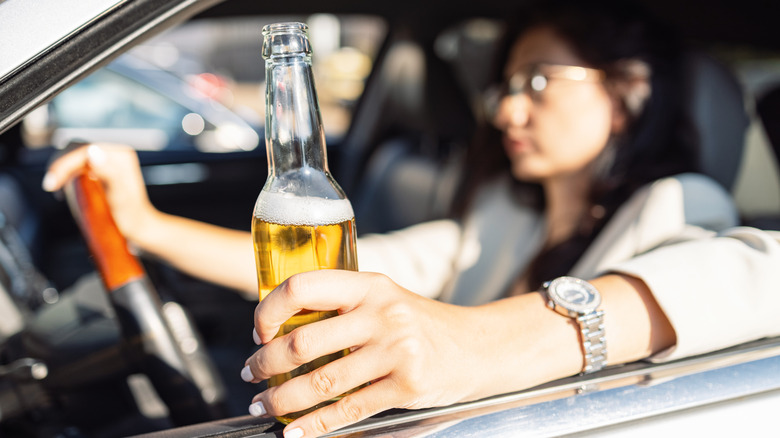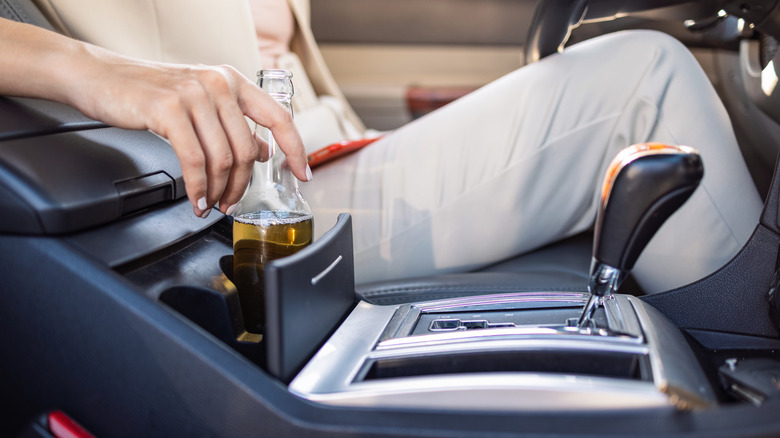What Counts As An 'Open Container' In Your Car? Here's What The Law Says
Generally speaking, you are not allowed to have an open container of alcohol inside the passenger area of a vehicle. The trunk, however, is almost universally accepted as a safe place to store an open container. Still, the exact wording of the law varies in scope and language depending on the state you reside in.
Legally, an open container is defined as anything that isn't in its manufacturer's sealed condition. It's often regarded as any receptacle designed to hold alcohol that has been opened or even partially (or entirely) consumed. All but one state has laws on the books prohibiting the consumption and/or possession of open containers in a car. In Mississippi, you can "drink and drive," but the driver must maintain a blood alcohol concentration below the legal limits.
Connecticut, Delaware, Missouri, Rhode Island, Tennessee, and Virginia all forbid drivers from drinking while operating a motor vehicle, but that law doesn't extend to the passengers. California is one of the more stringent states and defines an open container as any receptacle containing alcohol that's open or has a broken seal or someone has partially consumed. So, a wine bottle with the cork still in place but missing the factory seal is a big problem. Placing a lid over the open container won't work either, and transporting them like this anywhere within the passenger area is considered a violation of Vehicle Code 23222(a).
The Transportation Equity Act for the 21st Century
So how did all this confusion come about? Well, thanks to the implementation of the Constitution's 21st Amendment that repealed Prohibition, the federal government can no longer directly legislate open container laws. In 1988, Congress mandated that every state establish its own rules to address the issue of open containers in automobiles. If they didn't, some portion of their much-needed federally provided aid earmarked for highway construction and maintenance would instead be used for alcohol-impaired driving countermeasures, including enforcing driving while intoxicated (DWI) laws.
Section 154 of the Transportation Equity Act for the 21st Century specifically requires states to make the laws (and ensure they are enforced) that not only forbid the consumption of alcohol, but also the possession of open alcohol containers inside the passenger area of any motor vehicle on a public highway (or the right-of-way of a public road). If you're wondering, that also includes while driving a lawnmower, by the way.
So yes, those previously mentioned states that allow passengers to drink (Connecticut, Delaware, Missouri, etc.) all lose out on millions of dollars in federal highway funds each year. Connecticut also has a weird caveat that prohibits drinking and driving specifically in parking areas designated for 10 cars or more. Then you have the latest DWI laws regarding self-driving cars. In the case of open containers, the more you know is indeed true.

